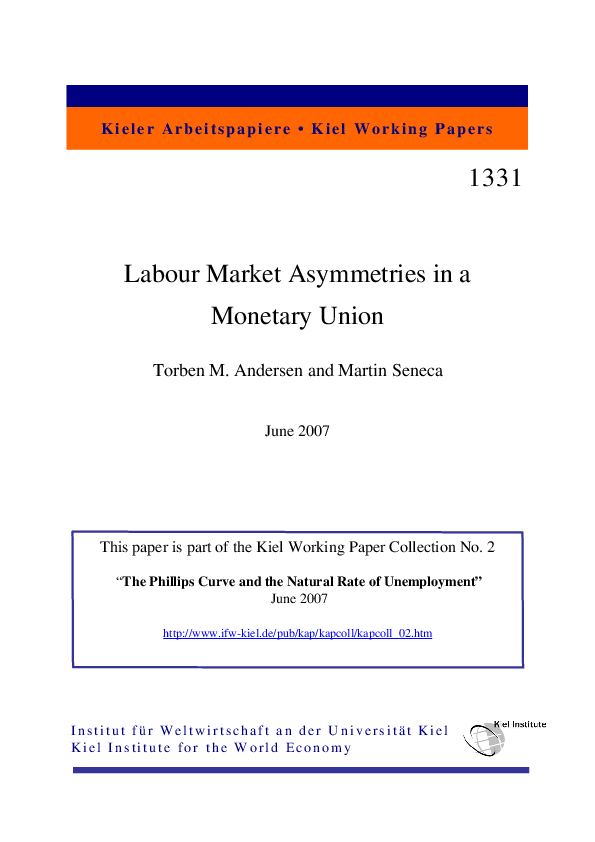Authors
Publication Date
JEL Classification
Key Words
This paper takes a first step in analysing how a monetary union performs in the presence of labour market asymmetries. Differences in wage flexibility, market power and country sizes are allowed for in a setting with both country-specific and aggregate shocks. The implications of asymmetries for both the overall performance of the monetary union and the country-specific situation are analysed. It is shown that asymmetries can have important effects, and that there are substantial spill-over effects. Among other things, it is found that aggregate output volatility is not strictly increasing in nominal rigidity but hump-shaped. A disproportionate share of the consequences of wage inflexibility may fall on small countries. In the case of country-specific shocks a country unambiguously benefits in terms of macroeconomic stability by becoming more flexible, but in general an inflexible country does not necessarily achieve more output stability by becoming more flexible. As this may be desirable for the monetary union as a whole, there is a risk of a ’reform deficit’ in an asymmetric monetary union.





